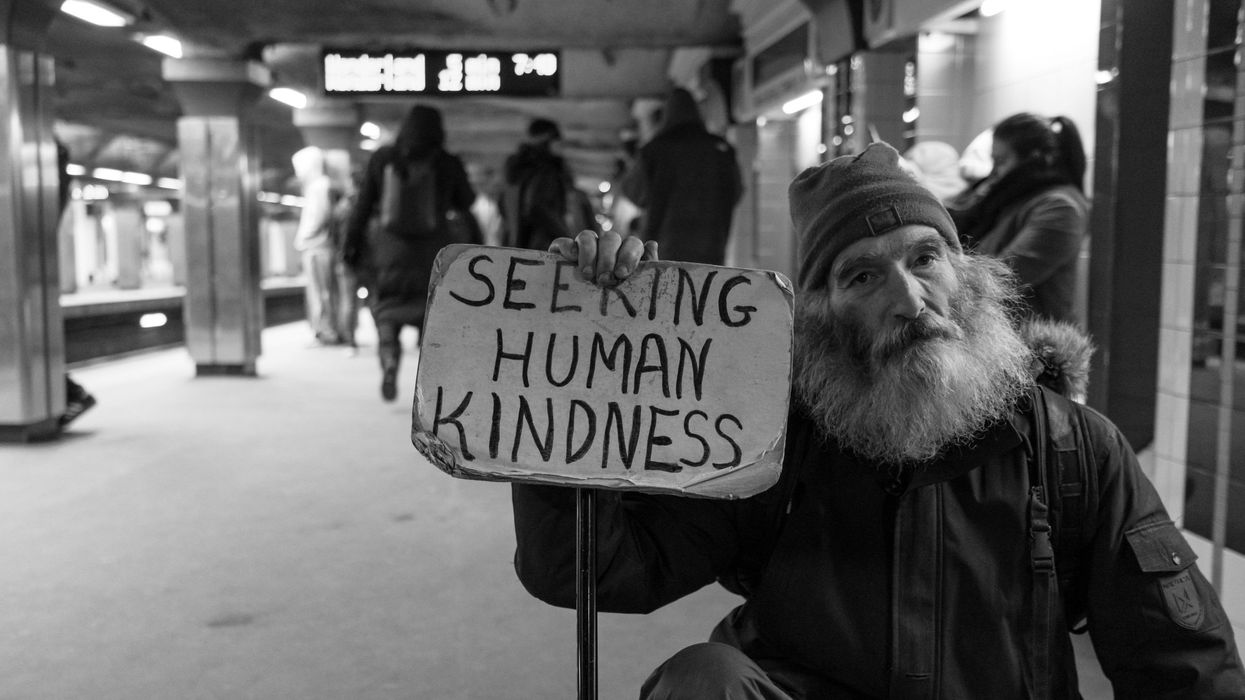Homelessness and mental health often go hand in hand. Now a new Canadian study by the Centre for Addiction and Mental Health and Toronto’s St. Michael’s Hospital gives insight into possible solutions. The big conclusion: solving the housing problem first ultimately reduces the homelessness epidemic long-term.
READ: 3 Ways To Prevent Homelessness Instead Of Just Reacting To It
For policy makers, this means using modelling programs such as Housing First, which began in 2008 across five Canadian cities. It’s a program that focuses on quickly moving people experiencing homelessness into independent and permanent housing and then providing additional mental health supports afterwards. Homeless people are provided immediate access to rent supplements.
Too often homelessness exacerbates mental health symptoms, as was seen in the case of local Toronto musician Justin Haynes, who wrote a profile of his degrading experience with the Toronto men’s shelter Seaton House for Now Magazine. Unable to find affordable housing, Haynes passed away two months later – a death which ultimately shone the light on what he described as the city’s “war on the poor.”
READ: Toronto Home Depot Stores Need Your Help To End Youth Homelessness
“It’s consistent with what we learned in Winnipeg, in that Housing First is a more effective way to support people who are homeless and living with issues with mental health or addictions,” said Corinne Isaak, the manager of evaluation and shared measurement at End Homelessness Winnipeg. “Through Housing First they get immediate support with a team as well as get placed in housing right away, so there’s no pre-requirements for readiness, there’s no pre-requirement for any kind of sobriety or being committed to knowing a specific regime in terms of a mental health treatment.”
People find themselves homeless through a variety of factors. But a punitive model for substance use in the housing epidemic simply isn’t effective. Housing First doesn’t require people to stop using substances. Instead, the mandate to address housing first, mental health second, has had incredible results. After following people over a six-year period, the participants who had attended the Housing First program had stable housing 85 per cent of the time compared those who went through the traditional channels for help. The second group only retained stable housing for 60 per cent of the time.
READ: Up With Women Founder Proves Homelessness Is Not A Dead End
“It’s really more of a person-centered approach, where it’s really more about the person and what they need and where they’re at,” she said. “If a person is experiencing mental health issues, there can be all kinds of challenges that interfere with them accessing housing (and) being able to advocate for themselves.”
That said, homelessness advocates say there is no blueprint for solving the epidemic.
“I think it’s based on the individual. I don’t want to paint everybody with the same brush because what works for one doesn’t work for another,” said Christy Loudon, the community outreach manager for Downtown Winnipeg BIZ’s Community Homeless Assistance Team.
READ: Toronto Has A New Housing Model To Fight Homelessness — And It’s Working
“I’ve seen where it’s worked really well for a person to be placed in a house or a home, and then walk away from it because the anxiety was so great that they needed intensive support after the fact too,” Loudon added.
Given the pressures on the Toronto shelter system, it’s urgent for this issue to be solved now before another winter of deaths-by-freezing.





















